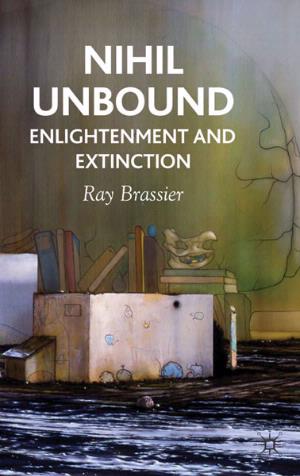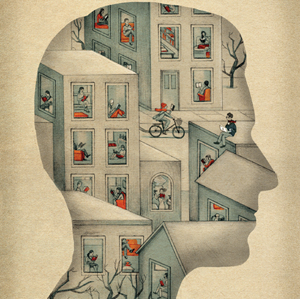 Today, the power of faith – or what George Bush calls his gut – is a force in the world. Many rationalists have tried to confront this situation, and have mainly pursued two different strategies. Some have tried to fight faith directly, pitching scientific beliefs against religious ones. Others have worked for a compromise, arguing that reason and faith are two equal partners in a combined search for meaning. So far, neither of these strategies has met with much success.
Today, the power of faith – or what George Bush calls his gut – is a force in the world. Many rationalists have tried to confront this situation, and have mainly pursued two different strategies. Some have tried to fight faith directly, pitching scientific beliefs against religious ones. Others have worked for a compromise, arguing that reason and faith are two equal partners in a combined search for meaning. So far, neither of these strategies has met with much success.
This suggests that a new approach is required, and this book proposes one. According to Ray Brassier, the full coruscating radicalism of the Enlightenment legacy must be upheld at all costs, against apartheid appeasements, and especially against attempts to defend it on the wrong grounds.
But pitching the case for reason in the terms of a somehow superior set of beliefs is regressive. “Philosophy,” he writes, “should be more than a sop to the pathetic twinge of human self-esteem.” In Brassier’s view, enlightenment is not an accomplished moral achievement for which we can pat ourselves on the back, but rather an “invigorating vector of intellectual discovery” that, as intellectual creatures, we are obliged to pursue right through to its end.
Brassier has a particular end in mind. This is the inexorable fact of extinction, the polemical pivot of this book. “[T]he earth will be incinerated by the sun 4 billion years hence; all the stars in the universe will stop shining in 100 trillion years; and eventually, one trillion, trillion, trillion years from now, all matter in the cosmos will disintegrate.”
For Brassier, these facts are of central philosophical import. In his view, because extinction is the inevitable fate of existence, in logical time it has already occurred. “The subject of philosophy is already dead,” Brassier writes, “and ... philosophy is neither a medium of affirmation nor a source of justification, but rather the organon of extinction.”
Brassier’s basic claim is epistemological. In his understanding, humanity ultimately has no intrinsic value, and it is the duty of rational thought to embrace this fact. “[E]xistence is worthless,” he writes, “and nihilism is ... the unavoidable corollary of the realist conviction that there is a mind-independent reality which ... is indifferent to our existence and oblivious to the ‘values’ and ‘meanings’ which we would drape over it in order to make it more hospitable.”
By “nihilism” Brassier means a reality shorn of sentimental opiates. For him, healthy philosophy must confront the fact of an oblivious universe without blinking. This steely summons represents the point of departure for this book as a whole.
The bulk of Nihil Unbound is composed of a series of readings of weighty philosophical texts. The principal players here are the American brain scientist Paul Churchland and the French triad of Quentin Meillasoux, Alain Badiou and François Laruelle. This is an idiosyncratic assembly, united more by a shared radicalism then by any shared interests. Brassier does not pretend otherwise. The stance he adopts towards them is that of a scavenger, not a mediator.
Armed with his all-nullifying event of extinction, Brassier wields it like a kind of scalpel, operating to cut the last soft flesh away from the clean white bones of these figures. The idea is to assemble a sturdy conceptual architecture, able to stand on its own without supernatural support.
For each of these figures, the basic line is the same: “One more effort, philosophers, if you would be realists!” The only exception to this pattern is the elusive and obscure François Laruelle, the philosopher who developed a branch of philosophy he calls “non-philosophy”. Brassier is possibly the only man in the world to have read Laruelle, and his take on him is wholly positive. As he understands it: “Laruelle provides the key to understanding the diachrony inherent in what Meillasoux calls ‘absolute time’ and allows us to appreciate that ‘it is no longer thought that determines the object, whether through representation or intuition, but rather the object that seizes thought, and forces it to think it ... according to it.’”
Let me confess at this point that I have only a dim inkling, at best, of what this might mean. Written in an extraordinary form of technical prose, Nihil Unbound is intended for a specialised audience, and shows it. Throughout this book, one is never quite sure whether it is the ideas that are difficult, or the style. This is a particular shame since at several points in this book Brassier reveals a brilliantly dramatic touch that he could easily have used more often.
Ultimately, this book is a stepping-stone to potentially greater things. It does not really accomplish what it sets out to achieve, but rather only sets the stage for it. What it works towards is a revitalised theory that would permit a truly rational stance on reality. If this were to be gained, the faithful could be permitted to scrabble around in the basement looking for the light switch as much as they liked, because rationalists would hold in their hands the map to the entire house.
Nihil Unbound is published by Palgrave

